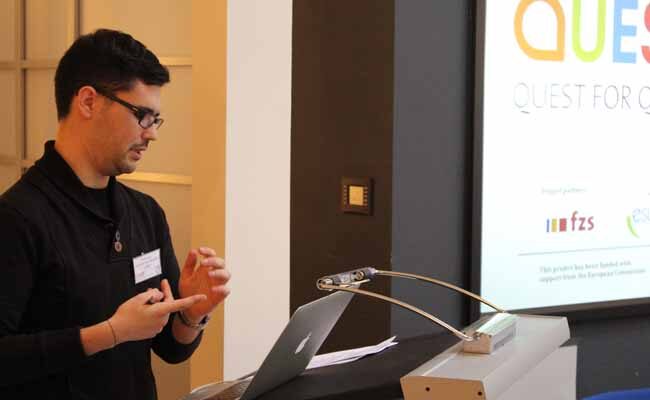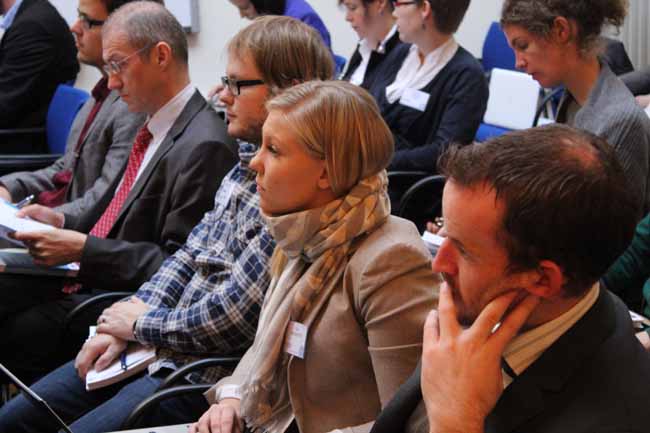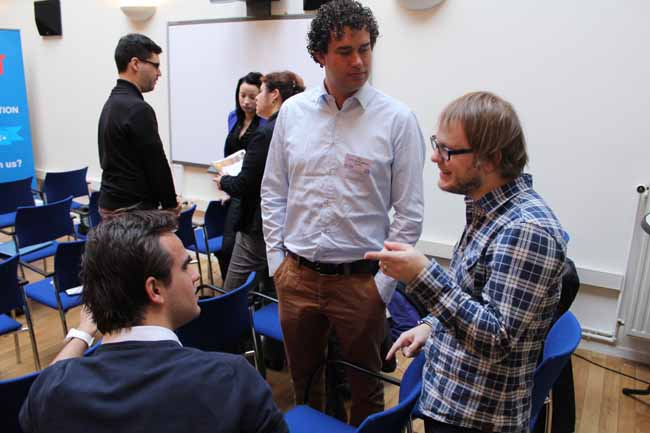
Quality assurance should promote change and drive it forward
BRUSSELS – It is essential to strengthen trust and to remove the obstacles that students face in quality assurance activities in order to enhance their participation. Students need to be involved at every stage in quality assurance and decision-making processes so that the quality of higher education can be improved.
Quality assurance activities should not be limited only to learning and teaching processes, as other factors may also influence the quality of higher education. Student-centred learning approaches should be adequately implemented by higher education institutions and public authorities should support that development.
Higher education institutions need to develop their communication and information channels to ensure that they provide the relevant information to students according to their expectations. In that respect, quality assurance needs to be transparent and accessible to the wider public. Further research is, however, required on how students’ expectations are generated and how quality is conceptualised, especially in relation to external influences.
These are among the main outcomes of the Quest for Quality for Students’ project (QUEST) that were presented at a final conference at Neth-ER in Brussels on 31 October. The QUEST project, co-funded by the European Commission, was officially launched in 2010. The team behind it has since then been working hard on the ambitious task of identifying student views’ on the quality of higher education in order to develop a student-based concept for this issue.
“The debate surrounding the quality of education in general, of higher education in particular, is often led by the governments and strongly linked to economic indicators such as the employability of graduates, drawing a picture of the so-called efficiency of the higher education system. That understanding of the concept of quality of higher education from the policy-making arena has always been challenged by students’ unions, higher education institutions or teachers’ trade unions, that do often have another point of view on how quality should be understood,” says Fernando Miguel Galán Palomares, Vice-Chair of the European Students’ Union (ESU) and main coordinator of the QUEST project.
A number of experts and stakeholders were invited to the conference to discuss the findings. They included Marko Grdošic (EURASHE), Tia Loukkola (EUA), Achim Hopbach (ENQA), Collin Tuck (EQAR), and Adam Tyson, from the Directorate General for Education and Culture at the European Commission. Representatives of the Romanian Agency for Quality Assurance of Higher Education (ARACIS), student participation in quality Scotland (sparqs) and the free association of student bodies in Germany (fzs), who were partners to the QUEST project, did also take part in the meeting.
Distrust in quality assurance a problem
Although there was a general agreement on the benefits of quality assurance activities at the conference, it was clear that the participants had different views on how quality assurance should be defined and how it should be implemented. One of the concerns that was raised based on the QUEST findings was that trust in quality assurance needs to be strengthened at all levels. Quality assurance is often viewed as a purely bureaucratic process and its participants do not always see the benefits of it or experience delays. Students do in general have little knowledge about quality mechanisms, especially at the European level.
“Quality assurance should not just be about promoting the idea of quality education, it should also be driving it forward,” says Galán Palomares.
The project findings of QUEST and more useful information on how students can become increasingly involved in quality assurance mechanisms are available on a Wiki-style website created especially for reaching the project’s aims and contributing to the goal of increasing student engagement in related activities.



— END —
For more information, please contact:
Fernando Miguel Galán Palomares, ESU Vice-Chairperson: +32/473.669.892 // fernando@esu-online.org or Robert Hlynur Baldursson, ESU Communications Manager: +32/473.669.894 // robert@esu-online.org

The European Students’ Union, headquartered in Brussels, is the umbrella organisation of 47 national unions of students from 39 European countries. ESU represents and promotes the educational, social, economical and cultural interests of students at the European level. Through its member unions, ESU represents over 11 million students in Europe. To find out more about ESU, follow us on Twitter @ESUtwt, check out or Facebook page or visit www.esu-online.org. ESU celebrates its 30th anniversary in 2012.
